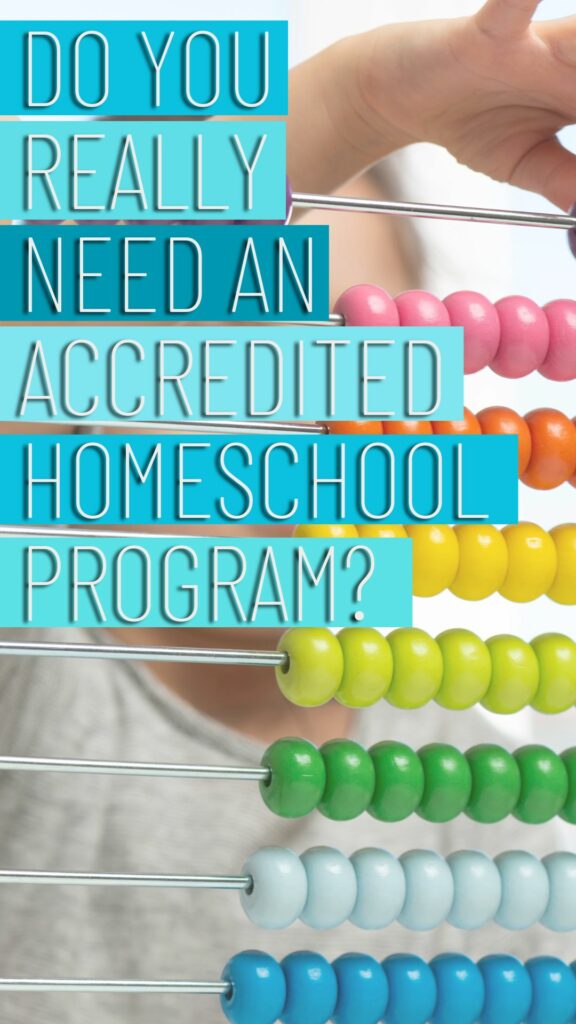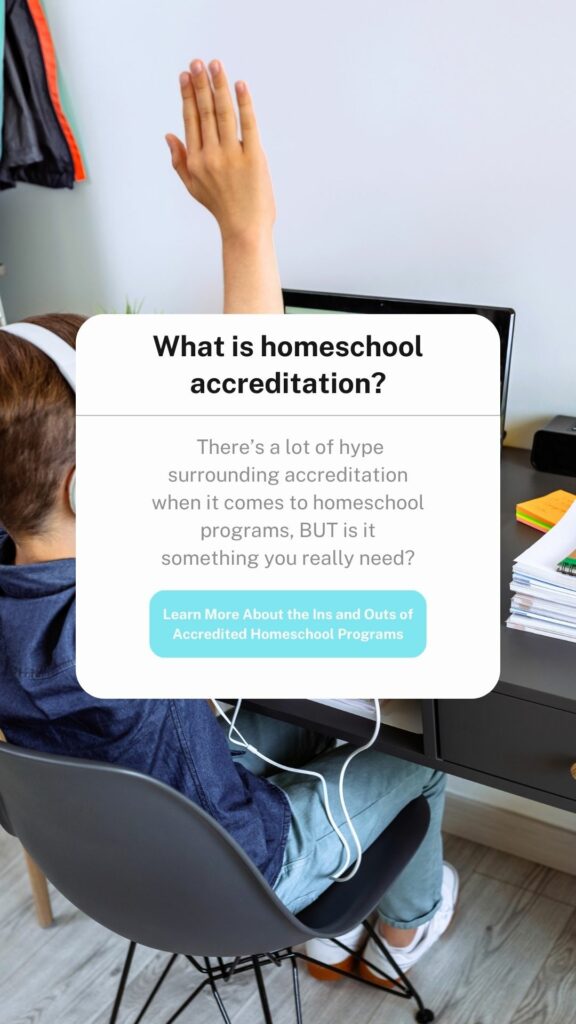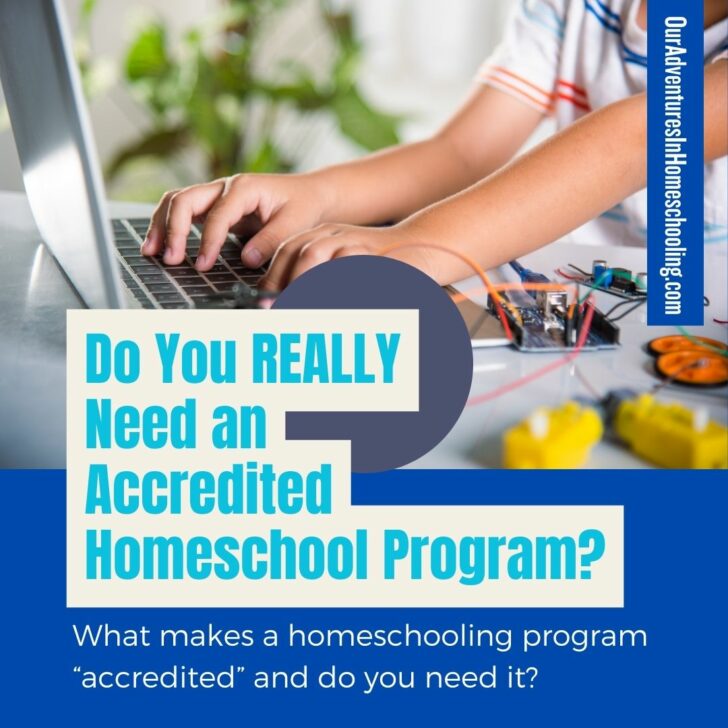One common concern among parents considering homeschooling is whether they should opt for an accredited homeschooling program.
Accreditation is essentially a recognition that a school or educational program meets certain standards of quality and rigor. While accreditation can have its benefits, it’s important to understand whether it’s a necessity for your homeschooling journey.




Table of Contents
Pros of Accredited Homeschool Programs:
- Transcript and Record Keeping:
- Accredited programs often provide transcripts and official records, which can be beneficial if your child plans to transition back to traditional schooling or attend college.
- Accreditation might ease the transfer process, as schools and colleges are more familiar with accredited institutions.
- Structured Curriculum:
- Accredited programs typically offer a structured curriculum, which can be helpful if you’re new to homeschooling or prefer a clear guideline to follow.
- This structure can provide reassurance and guidance for parents who are less confident in designing their own curriculum.
- External Validation:
- Opting for an accredited program can offer an external validation of your homeschooling efforts.
- Some families find comfort in having their educational approach recognized by an official authority.




Considerations for Non-Accredited Homeschooling:
- Flexibility:
- Non-accredited programs or independent homeschooling offer unparalleled flexibility.
- You have the freedom to tailor the curriculum to your child’s needs, interests, and learning style without being bound by external guidelines.
- Cost-Effectiveness:
- Accredited programs often come with a price tag, while non-accredited options, such as free online resources, can significantly reduce costs.
- This is particularly beneficial for families on a tight budget.
- Customization:
- Independent homeschooling allows you to personalize your child’s education, diving deeper into subjects of interest and spending more time on areas that require additional attention.
- Real-World Learning:
- Non-accredited homeschooling can provide opportunities for real-world learning experiences, such as field trips, hands-on projects, and community involvement, which can greatly enrich your child’s education.




Whether or Not to Choose an Accredited Homeschooling Program
The decision of whether to choose an accredited homeschool program ultimately depends on your family’s goals, values, and priorities.
If you’re planning for your child to eventually rejoin a traditional school or if you prefer a structured curriculum, an accredited program might be worth considering.
However, if you value flexibility, customization, and cost-effectiveness, non-accredited homeschooling or a combination of accredited and independent resources could be a better fit.
Remember that in many regions, homeschooling laws vary, and accreditation might not be a legal requirement. Research your local regulations to ensure compliance with the law while tailoring your homeschooling approach to your family’s unique needs.
While accredited homeschool programs offer certain advantages, they are not an absolute necessity for successful homeschooling.
Families have thrived using a variety of approaches, including independent and non-accredited methods.
Consider your child’s learning style, your budget, and your long-term goals when making this decision.
Ultimately, what matters most is creating an enriching and fulfilling educational experience for your child, whether through accredited or non-accredited homeschooling.




List of Accredited Homeschooling Programs
- Calvert Homeschool: Calvert Homeschool offers accredited online and print-based programs for grades K-12. They provide a comprehensive curriculum that covers core subjects along with electives and enrichment activities. Their programs are designed to meet state and national standards.
- K12 Homeschooling: K12 offers accredited online homeschool programs for students in kindergarten through 12th grade. Their curriculum includes interactive lessons, assessments, and certified teachers who provide guidance and support.
- Connections Academy: Connections Academy provides accredited online homeschooling programs for students in various states. They offer personalized learning plans, certified teachers, and a wide range of courses to choose from.
- Bridgeway Academy: Bridgeway Academy offers accredited homeschooling programs for grades K-12. They provide customizable curriculum options, teacher support, and a variety of learning approaches to cater to different learning styles.
- Laurel Springs School: Laurel Springs is an accredited online private school that offers homeschooling programs for students in kindergarten through 12th grade. They provide a rigorous curriculum, individualized learning plans, and teacher support.
- Keystone School: Keystone School offers accredited online homeschool programs for students in grades K-12. They offer a self-paced curriculum that allows students to progress at their own speed while being supported by certified teachers.
- American School: American School offers accredited homeschooling programs for students in grades 6-12. They provide a variety of courses and flexible payment options.
It’s important to research each program thoroughly to determine if it aligns with your family’s educational goals, budget, and preferences. Keep in mind that accreditation standards can vary, so ensure that the program’s accreditation is recognized in your state or region.
Additionally, consider whether the program’s teaching style, resources, and support services are a good fit for your child’s learning needs and your overall homeschooling approach.
What did you decide? Share in the comments why you chose an accredited homeschooling program or why you decided to forego it.


The BEST Cheap Homeschool Programs for Getting Started
Thursday 31st of August 2023
[…] more about accredited homeschool programs and whether you really need one or […]